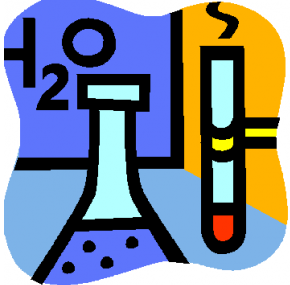
Sometimes chemical engineers end up in non-chemical businesses. I am one such engineer. In fact, I am my company's token chemical engineer. With this, there are the bragging rights of being the only chemical engineer. There are also the hazards of being the only chemical engineer, the dreaded "um, someone told me you know chemistry" conversation starters. Often a reply such as "you were misinformed" might be useful to escape the obvious next sentence of the conversation "why does my plastic/glue/metal change color/texture/stickiness/strength?" Seeing as that I have the word "chemical" in my degree, obviously, I should have all the answers to any permutation of the above question--or so everyone believes.
There was the time that I went about calculating an approximation of how much coal we save through the energy savings of our products (assuming that coal was the only way to produce electricity--which was what marketing came up with). I spent an evening doing research and thoughtful calculations and presented my findings in an email to our Engineering Manager. Apparently he forwarded this on and eventually I got an email back from an individual that was questioning my calculations. The questioning email contained the sentence "Well I read on the Internet..." maybe we should just stop right there since I already found the problem. The calculation the individual found on the internet used a coal furnace that generated electricity at 90% efficiency.
Really? I did have to write back and explain that the calculations he found were not based in reality... or any reality I have ever visited and that my approximations were reasonable given... well... reality?
Perhaps my favorite chemistry question went something like this:
"I need to find an adhesive that dries with kind of a grit. We found one overseas but the chemical formula got cut off on the fax... here's some of it, do you know what it is?"

Sure, let me use my magic wand. Of course there are no samples for me to look at, but then again, what would I use to analyze it? The standard-issue pliers, wire stripper and screwdrivers all the engineers are issued? Regardless, I gave it the good old college try. I looked in Perry's, Knovel, and my Polymer textbook from college as well as random internet searches and came up with nothing, but I am still not sure what it was I was looking for. The part of the chemical formula that was actually on the fax sheet was CH3, like that isn't part of thousands and thousands of compounds.
Pursuing a non-chemical career doesn't mean you won't get the chemistry related questions. In fact, it probably means that you will get the more amusing chemistry-related questions. That is, of course, unless you don't divulge your field of study to anyone within your company. But that would be relinquishing the bragging rights associated with being the sole chemical engineer. Regardless, you can take the engineer out of chemistry but can't take the chemistry out of the engineer.



Comments
I'm game. I married a psychology major and one time I found myself at birthday party for one of her peers. They were curious about me and asked me what I did for a living. I thought about it a moment and said, "I design processes that everyone uses everyday." They were dubious and one of them started pointing different objects in the room and asked me if a chemical engineer made it and pretty much almost all of the things in the room (I also gleefully pointed out we were involved in the production of the lightbulb as well as the electricity that runs it). It kinda blew them away and it kinda blew me away too. Is there anything a chemical engineer *isn't* involved in making?
Not many these days. Even natural products tend to have some Chem E working in the process somewhere to maximize the yield, improve the product, reduce waste, etc. However I do know of a lot of wine, beer producers who do not use chemical engineers or often even chemists. That said, they are still reliant on us as we are involved in all they need for the production and sale of these goods.
Very nice article.... Do you guys know chemical engineers and chemists are good cooks?? Ofcourse if we do the things that we do in the lab or in the plant at home while cooking, we will have a quality product- tasty food! We wash the rawmaterials (pre treatment), cut the vegetable/meat (milling), marinate if necessary, control the temperature and pressure, mix it often, apply heat at a particular rate, keep it in oven or on a stove for a particular residence time, and finally adjust the taste based on the feed back (this is statistical process control and blending)!! So all the cooks may not be necessarily great chemists and chemical engineers but definitely all great chemists and chemical engineers should be great cooks !! I have a colleague whose wife commented like this,"you can boil water in your reboiler in the plant, but can not make hot water for tea?". No comments from my side!
The saying I have heard is that Cooking is an Art and Baking is a Science. To be honest, I feel I'm a better baker than a cook (I mean, I like what I cook, but everyone likes what I bake). In baking you have to have the formula right (within a certain tolerance). The amount of yeast, baking powder or baking soda is critical for the rise factor in breads and muffins. If the formula is off you could have flat muffins or very thick bread. There is also optimal mixing time - too much mixing means you can tire out the mixture and will yield hard scones.
Seriously, ya'll need to watch Alton Brown on Good Eats. That's a cooking show a chemical engineer can appreciate.
I do love Good Eats! I love how Alton explains the history and the chemistry involved with each food and cooking process.
Agreed!
<a href="http://www.sciencedaily.com/videos/2009/0112-chemistry_of_cooking.htm" target="_blank">http://www.sciencedaily.com/videos/2009/0112-chem...</a> Found something about the Chemistry of Cooking - reminded me of this conversation - enjoy!
Elizabeth, I'm totally in the same boat. I graduated from Lafayette College with a B.S. in chemical and biomolecular engineering and am now part of the Olympus Fellows Program for Olympus America Inc. I am the first and only chemical engineering here too! I've been asked similar "chemistry-related" questions although I mainly do corporate management work. Thanks for the entertaining article!